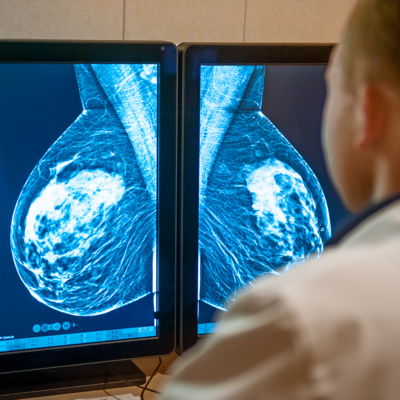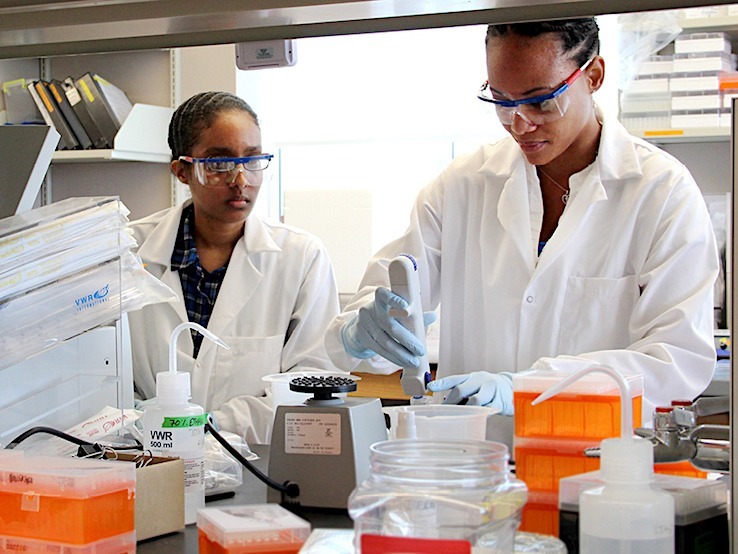News
Our research not only influences the scientific community, but the general public as well. We strive to share our discoveries with everyone. Read some of our latest articles on what is happening at the Nutrition Research Institute.
Breast Cancer Subtype Important in Deciding Impact of Folate
February 1, 2017 • It is generally known that folate (vitamin B9) is important in early pregnancy to prevent neural tube defects in babies, because folate is needed by rapidly dividing cells (e.g., those of a developing embryo) for DNA synthesis and cellular energy production. As a consequence, many processed foods in the United States are fortified with […]
One Scientist's 40-Year Journey to the First NIH-Endorsed FASD Diagnostic Criteria
January 1, 2017 • After almost 40 years of research, Philip May, PhD, a leading expert in the field of fetal alcohol spectrum disorders (FASD), and his team have published their fifth study on FASD in a South African community. Equally as monumental is the recent endorsement by the National Institute on Alcohol Abuse and Alcoholism (NIAAA), one of the National Institutes of Health (NIH), of the FASD diagnostic guidelines that were developed by May’s research team […]
What We're Learning about Mom's Nutrition and Alcohol
January 1, 2017 • Dr. Phil May’s research group at the NRI studies the prevalence of Fetal Alcohol Spectrum Disorders (FASD) in humans. The recent addition to the NRI faculty of Dr. Susan Smith now provides an avenue toward understanding how maternal nutrition might affect the relationship between alcohol and FASD through the use of animal models. Two recent papers from these research groups illustrates this synergy […]
Renowned Scientist Joins Nutrition Research Institute
November 30, 2016 • Susan Sumner, PhD joins the UNC Nutrition Research Institute (NRI) on December 1, 2016, as a Professor of metabolomicsNutrition. Dr. Sumner is working to make personalized medicine a reality through metabolomics. Metabolomics involves measuring thousands of metabolites in cells, tissues, and biological fluids.
Add Healthy, Tasty Twists to Your Holiday Treats and Meals
November 21, 2016 • Holiday meals are one of the joys of the season that inevitably become the bane of each New Year, but it doesn’t have to be that way!
Seasonal delights are often packed with sugar, “bad” fat and holiday memories that make the temptation too much. This season, nutrition experts at the North Carolina Research Campus (NCRC) offer their tips, suggestions, and personal recipe favorites that will help you enjoy your favorite foods without carrying them with you into 2017.
Healthy Cooking for the Holidays: Recipes
November 16, 2016 • Appetite for Life is a series of community programs produced by the NRI brings the latest nutrition science research down to earth in educational and interactive lectures, demonstrations and events. NRI and JWU collaborated to bring the Cooking for Nourishment Demo, Healthy Cooking for the Holidays. See the recipes here.
Mom’s Diet Can Affect Development of Next Two Generations
November 17, 2016 • Nutritional deficiencies during pregnancy can have lasting effects across generations that impact development not only of children, but also of grandchildren. These heritable effects are linked to epigenetic changes that affect gene expression but not DNA sequence. At the NRI, we seek to understand how nutrition affects health and why different people respond differently to the same nutrients.
Nutrition Research Institute Shows Choline is Essential to a Normal Diet
November 1, 2016 • Though it’s present in a variety of foods and an essential part of a person’s diet, many people may not have heard of the nutrient choline.
Researchers from the University of North Carolina at Chapel Hill’s Nutrition Research Institute, located at the NC Research Campus in Kannapolis, have studied the impact that diets lacking in choline could have on everything from liver and muscle tissue to brain development.
Do Eggs Cause Heart Disease?
October 25, 2016 • Several recent studies linked increased levels of a metabolic product of dietary choline with higher risk of cardiovascular disease (CVD) (Wang et al., 2011; Tang et al., 2013) through a mechanism that involved gut microbiota-produced trimethylamine oxide (TMAO). These studies have sparked considerable scientific (and non-scientific) discussion, with health advice from some groups suggesting avoidance of meat and eggs (significant sources of choline) and from others suggesting that the findings have been vastly overinterpreted.
Support the NRI
By donating to the Nutrition Research Institute, your money targets the root of most American disease. Our scientists focus on how our genes respond to food so that soon medical practitioners will be able to guide people in their health from childhood through old age. Our critical research depends on the generosity of people like you.



